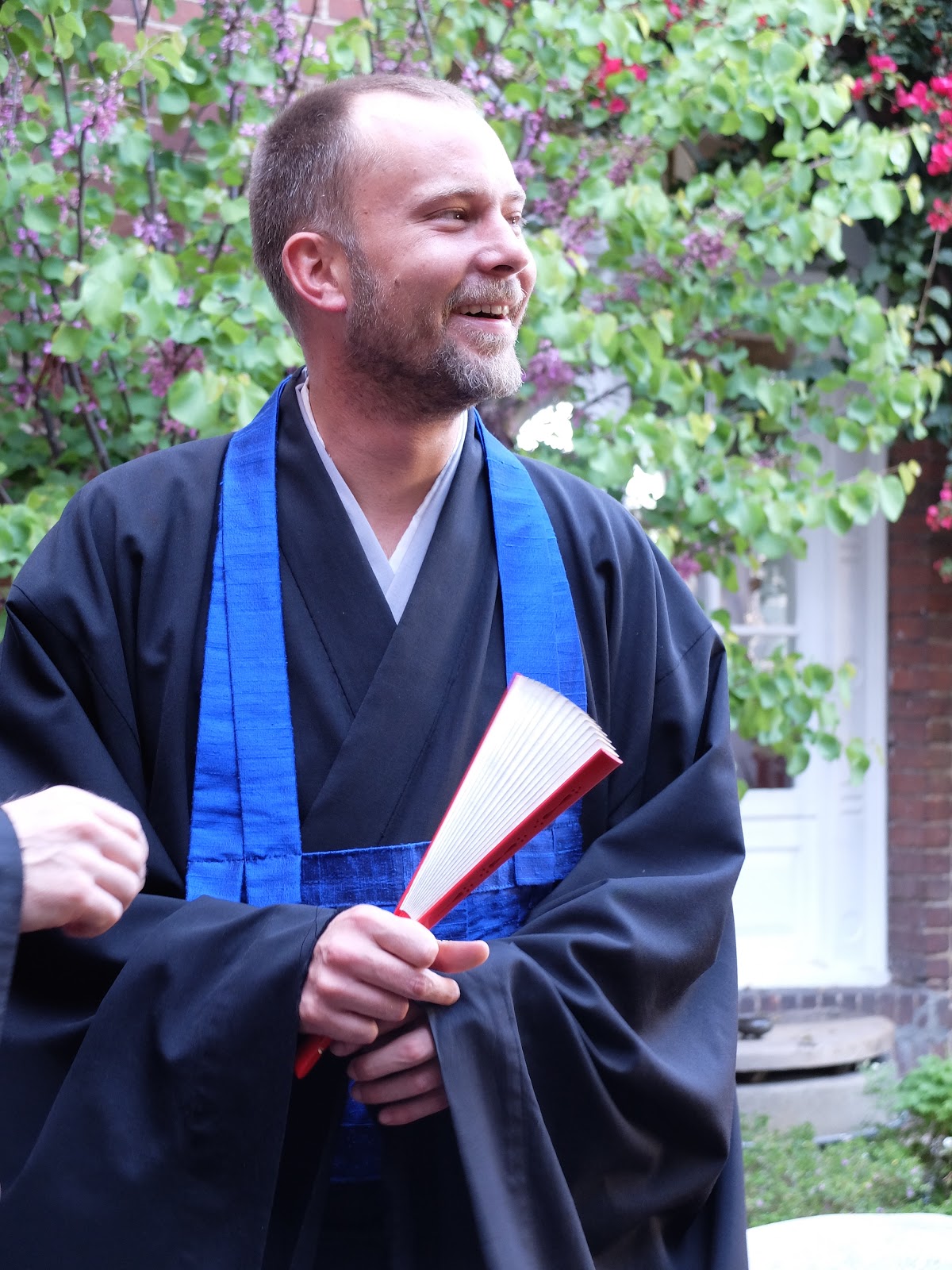Saturday, February 6th, 2021 @10am
“The true, or liberating, nature of all things is formless and inconceivably wonderful. It cannot be grasped, but it can be realized through the forms of everyday life. By giving up our habitual personal styles of deportment and bringing our body, speech, and thought into accord with traditional forms and ceremonies, we merge in realization with buddha. We renounce our habit body and manifest the true dharma body. This is renouncing worldly affairs and entering the buddha way.”
Tenshin Reb Anderson, from Being Upright
As Westerners, when we first step foot in a Sōtō Zen temple one of the first things we notice is how different it is from most anywhere we’ve ever been. There are unusual sounds (bells, wooden blocks), unusual smells (incense, flowers), and perhaps most strikingly, unusual ways of acting and moving (zazen, bowing, hand mudras, chanting foreign syllables). All kinds of reactions may come up in response to this “unusualness.” It might be off-putting, or just bewildering. It might feel somehow soothing or grounding. One thing is for sure, if we keep coming, and keep practicing, our own reactions will likely change. But what do all these forms have to do with waking up to our true nature? In a practice that is ultimately about realizing something “formless & inconceivably wonderful,” why all the particulars, and specialized ways of comportment? In this talk we’ll take a look at some particulars of Sōtō Zen practice, and ask how it is that forms & ceremonies may lead us to freedom.
 Tim Kroll began Zen practice in 2000 at the Chapel Hill Zen Center in North Carolina, where he was lay ordained by Josho Pat Phelan. In 2008 he moved to Tassajara Zen Mountain Monastery, and spent the next five years in residence at both Tassajara and San Francisco Zen Center – City Center. One of the founding leaders of the popular Young Urban Zen Community at City Center, Tim was Shuso (Head Monk) under Ryushin Paul Haller in 2015. Tim moved to Austin in April 2018 to become the AZC’s Director and is close to completing a doctoral program at AOMA in Traditional Chinese Medicine (acupuncture, and herbal practice). He hopes to return to Tassajara this Spring to train further with his teacher Ryushin Paul Haller.
Tim Kroll began Zen practice in 2000 at the Chapel Hill Zen Center in North Carolina, where he was lay ordained by Josho Pat Phelan. In 2008 he moved to Tassajara Zen Mountain Monastery, and spent the next five years in residence at both Tassajara and San Francisco Zen Center – City Center. One of the founding leaders of the popular Young Urban Zen Community at City Center, Tim was Shuso (Head Monk) under Ryushin Paul Haller in 2015. Tim moved to Austin in April 2018 to become the AZC’s Director and is close to completing a doctoral program at AOMA in Traditional Chinese Medicine (acupuncture, and herbal practice). He hopes to return to Tassajara this Spring to train further with his teacher Ryushin Paul Haller.
* Update *: While the Spring Practice Period at Tassajara has been moved to March 19th, this may change due to pandemic conditions. As long as the Practice Period *does* go forward, donations toward the expense of a Tassajara Practice Period would be much appreciated! READ MORE…
